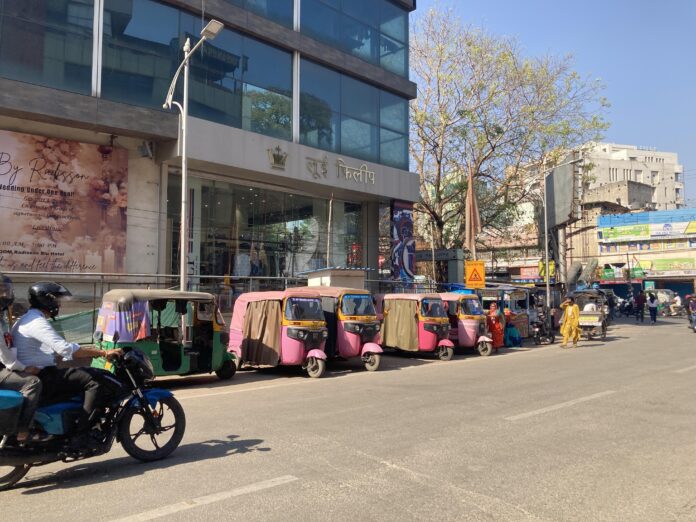Midhat Samra, TwoCircles
Ranchi: Suman Devi watched me photograph the pink auto and said that people come here to click pictures because the bright colour fascinates them but few bother to understand the struggles of the women who drive them.
The pink auto scheme was launched in Jharkhand in 2013 after the Nirbhaya case to address women’s safety concerns. It aimed to empower women by giving them employment and the vehicles were equipped with features such as panic buttons and a GPS system. The government launched two hundred autos but when only a few women signed up they appointed men as drivers. Today Ranchi has around forty pink autos and the situation has barely changed in twelve years.
The drivers say they have no basic facilities. Their stand is only an open patch of land along the road with litter and no shade. There is no shelter no lighting and not even a bench. When a VIP passes by they are pushed out and asked to relocate. Meanwhile male auto drivers have a proper designated lane. “We sit here in the sun and rain” said Reena.
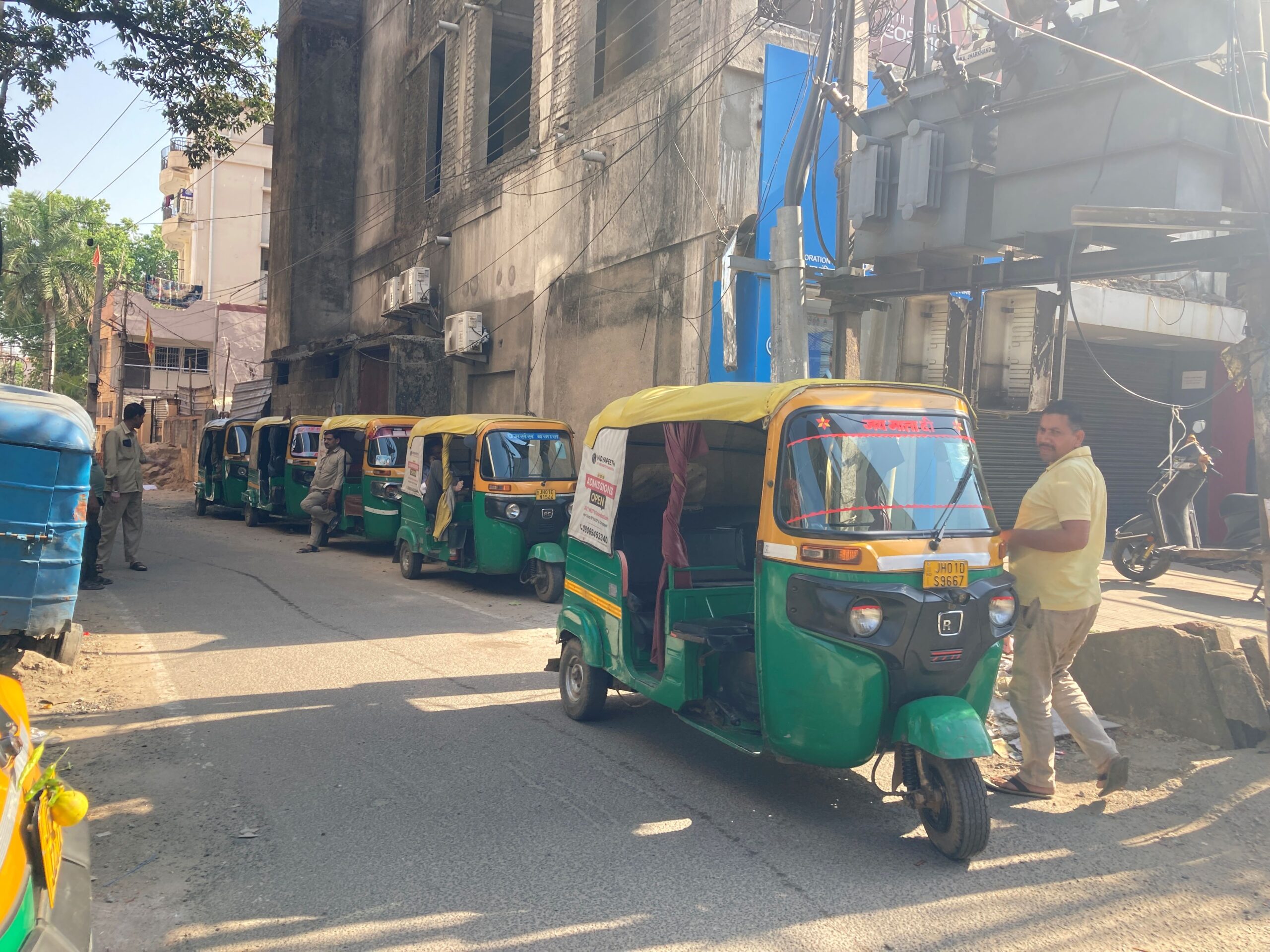
Women commuters however say they feel safer in these autos. Kiran Tirkey a college student said she prefers travelling with women especially after dark. “I feel at ease when there are only women around me. I do not like being in a closed space with unknown men. The fear of being touched inappropriately or the auto taking a wrong route is real. My parents feel relieved when I travel with a woman driver.” According to police data twenty two rape cases were reported in March 2025 alone showing how unsafe the city has become for women.
Shabana Perveen a frequent commuter said “She would rather share an auto with women because it makes her feel comfortable”.
But while commuters feel safe the drivers say they face harassment from men on the road. “Our income has gone down. It has become difficult to run a household. Men often take away our customers. At work we deal with them and at home we deal with unemployed drunk husbands. Some women also choose male autos because they feel jealous that we earn” said thirty five year old Shobha Kindo.
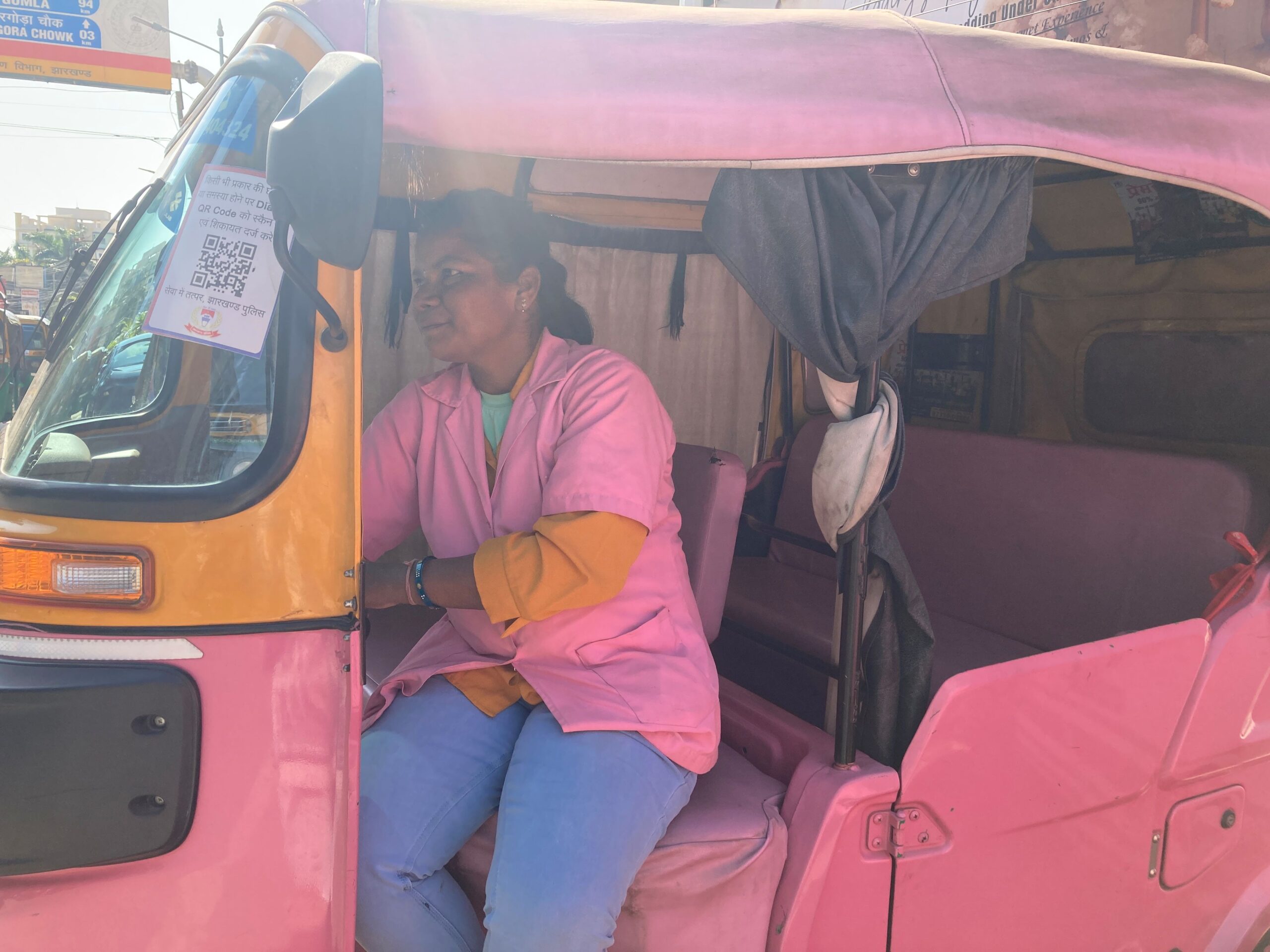
Suman Devi told TwoCircles that intimidation is common. “I am not afraid of the men. I have been dealing with them for ten years. They try to make us feel small but they are really afraid that we will take their jobs. As a widow I raised my children alone. I know how to face bullies.”
For the women the biggest problem is the lack of a washroom. “It has been twelve years and the government has not built a single toilet for us” said Reena. The drivers say they often have no option but to use nearby bushes. A public washroom exists but it is almost always locked. It opened only on the day it was inaugurated.
Dinesh Soni president of the Jharkhand Pradesh CNG Auto Chalak Association said they have repeatedly written to the authorities for basic facilities. “We have raised the demand for a clean toilet but have never received any response. The government does not listen. We are paying toll tax but for what” he said. The union has also written to the chief minister but has not received a reply.
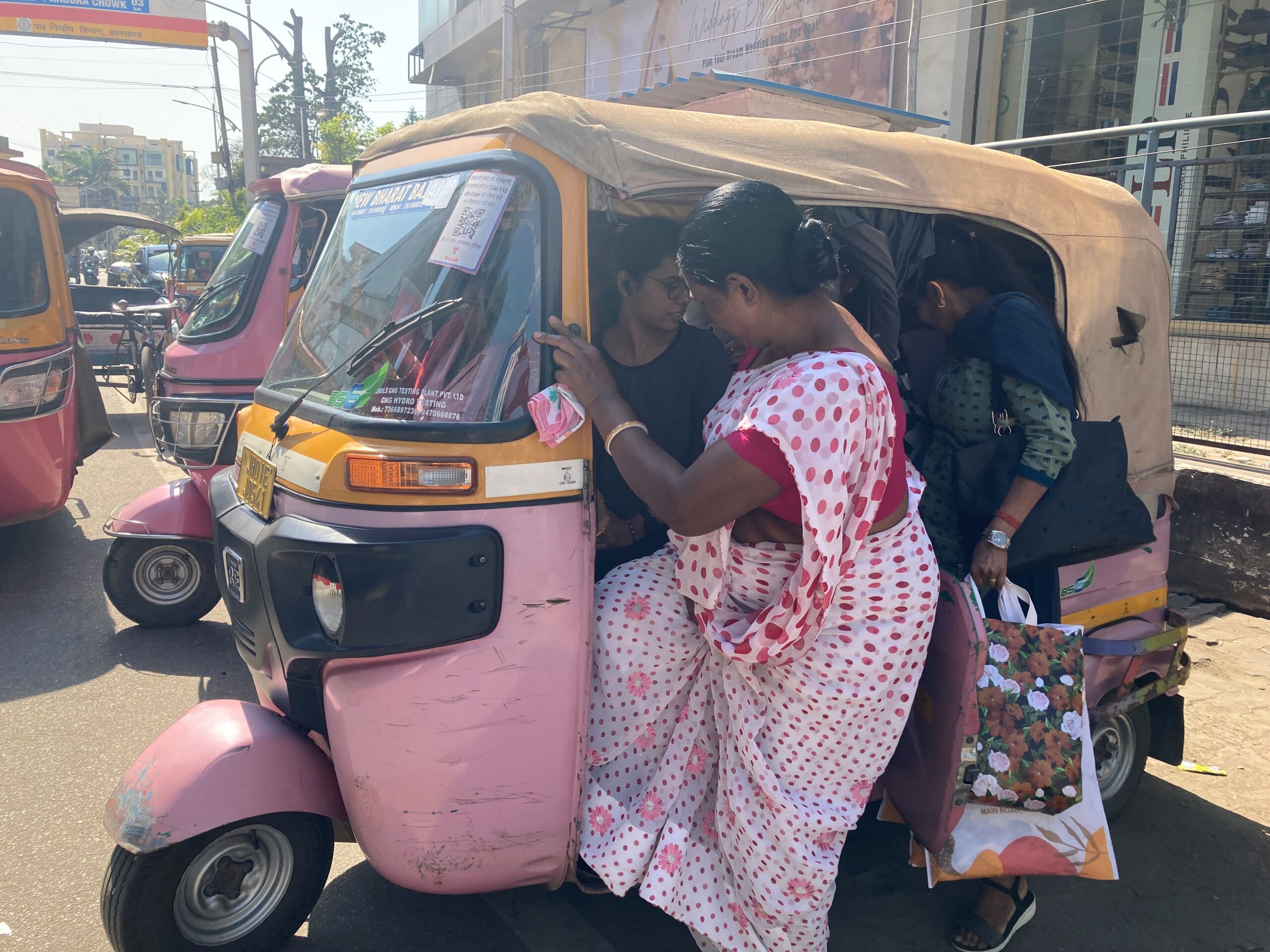
Women drivers say that unlike Tamil Nadu where women auto drivers work under cooperative unions they work alone in Ranchi. “We do not work under any union. We bought our own autos and drive independently. Had we been in a union we would have put up our demands. We have complained to reporters to police and to officials, but nothing changes” said Gudia who has been driving for more than a decade. She said no NGO has taken up their cause and most women are unaware of legal rights or grievance platforms.
Gudia explained that her husband initially hesitated to let her work but supported her after she insisted on being self sufficient. She proudly pays for her daughter’s education in an English medium boarding school. “I miss her every minute but I want a better life for her. I walked so that my daughter could run” she said.
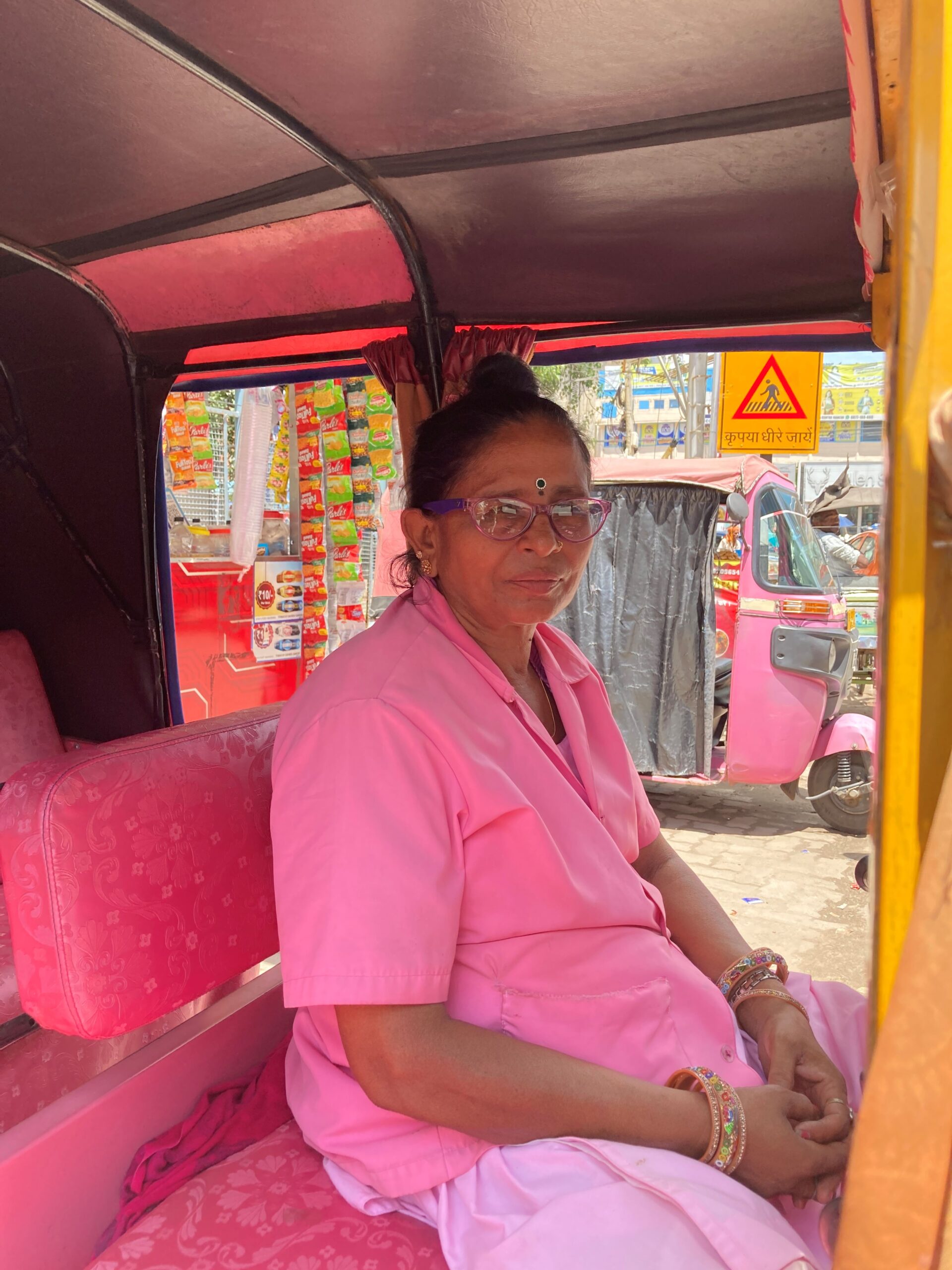
Many others have not been as fortunate. Several women at the stand have come out of abusive relationships, low paying jobs or the simple need to survive.
Despite everything, the drivers continue to hope. When asked what they would demand if they had a platform they listed permanent auto stands clean and accessible washrooms protection from harassment by male drivers and official recognition or financial support from the government. “We do not want favours” said Reena. “We just want basic facilities a proper space to park and an open public washroom.”


